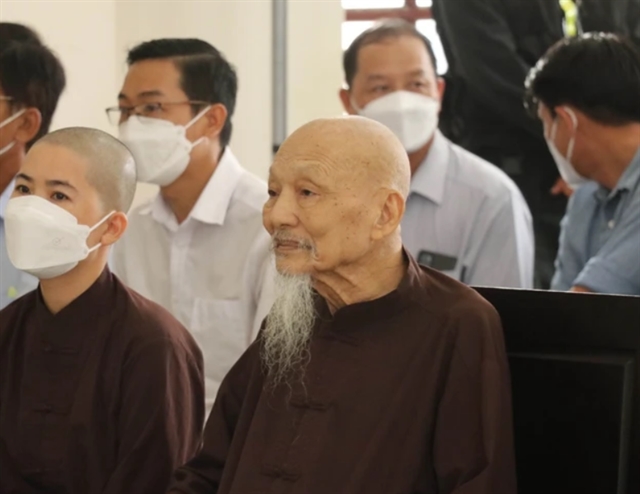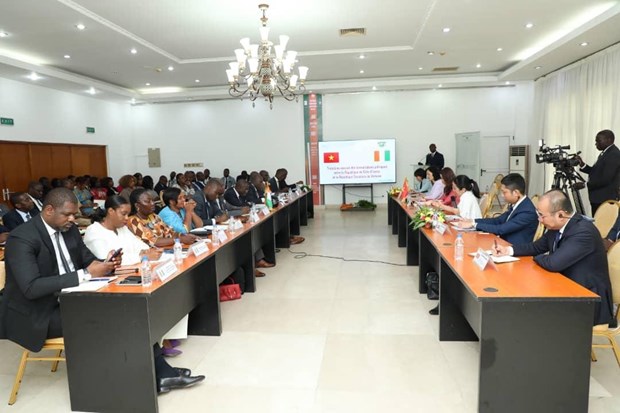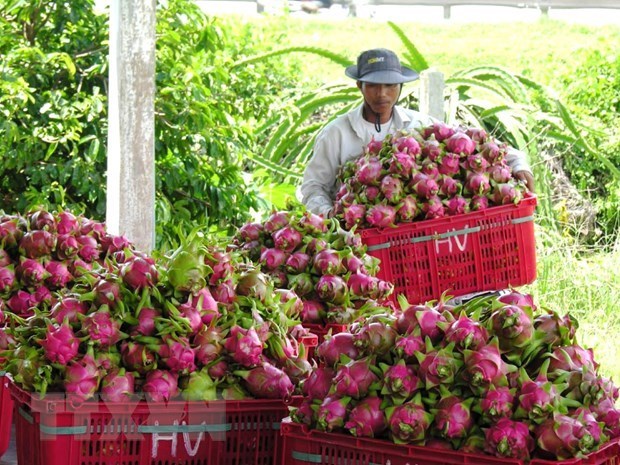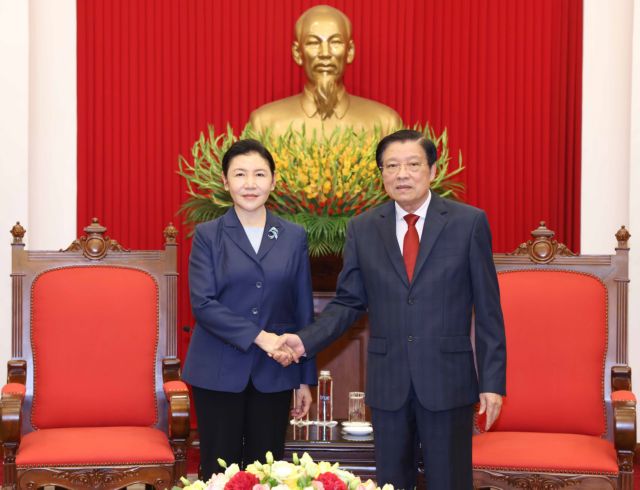 Society
Society


|
| A farmer harvests dragon fruit in Mekong River Delta province of Bình Thuận. —VNA/VNS Photo Nguyễn Thanh |
HÀ NỘI — Prime Minister Nguyễn Xuân Phúc has asked ministries, agencies and localities to take drastic measures to boost the development of the Mekong Delta region.
The region accounts for 19 per cent of Việt Nam’s population and 12 per cent of the country's size is the nation's biggest agriculture hub.
It contributes half of the national rice production, 95 per cent of the rice exports, 65 per cent of aquaculture production, 50 per cent of fish exports and 70 per cent of fruit exports.
The region plays a key role in ensuring the security, political and economic development of Việt Nam, so has received a lot of resources to make uses of its advantages and thrive, particularly as it is hard-hit by climate change.
To boost the region’s sustainable development, the Ministry of Natural Resources and Environment has been assigned to be a contact point to collect local and international contributions for a new national strategy on sustainable development in the Mekong Delta with climate change-responding measures.
PM Phúc assigned the Ministry of Transport to work with agencies and localities to develop transport infrastructure in the region.
Resources would be given to key works expected to create a driving force for development and regional links, for example, the North-South expressway linking the region with the southeastern region, Châu Đốc-Cần Thơ-Sóc Trăng route, An Hữu-Cao Lãnh route, Mỹ An-Cao Lãnh route, Rạch Miễu 2 Bridge, Đại Ngãi Bridge, the second phase of the Chợ Gạo Canal and the HCM City-Cần Thơ railway.
Agencies and localities have been urged to speed up preparations to fund investment for Trần Đề Port and Long An Port and to improve coastal and provincial roads.
The transport ministry has been tasked with defining the river-based economy and making it part of a Government resolution to optimise the region’s dense river/channel networks.
The ministries of education and labour, in co-operation with local authorities, must ensure people can access general education and job training.
Advanced training must also be promoted to help prepare high-quality human resources to increase productivity, income and better manage challenges the region is facing, especially those relating to climate change.
The Ministry of Investment and Planning is responsible for co-ordinating ministries/agencies and localities to boost links among localities within the region and links between the region and HCM City and southeastern provinces.
PM Phúc also asked for solutions to improve the business climate, administrative reforms and increase the competitiveness of the region.
Agencies and localities must be more flexible in attracting investment, including overseas development assistance and preferential loans.
Investors are encouraged to develop or join projects relating to climate change and adapting to seawater rises.
Localities must arrange funding to respond to climate change’s impacts.
The construction ministry was told to better control urban planning and rearrange residential areas to adapt to rising sea levels.
The environment ministry was told to review and amend land regulations to be compatible with natural changes. Rice growing areas could be shifted to other crops which generate higher economic benefits and are better adapted to climate change.
Agencies were also asked to improve disaster warning capacity and develop climate change response scenarios. — VNS









